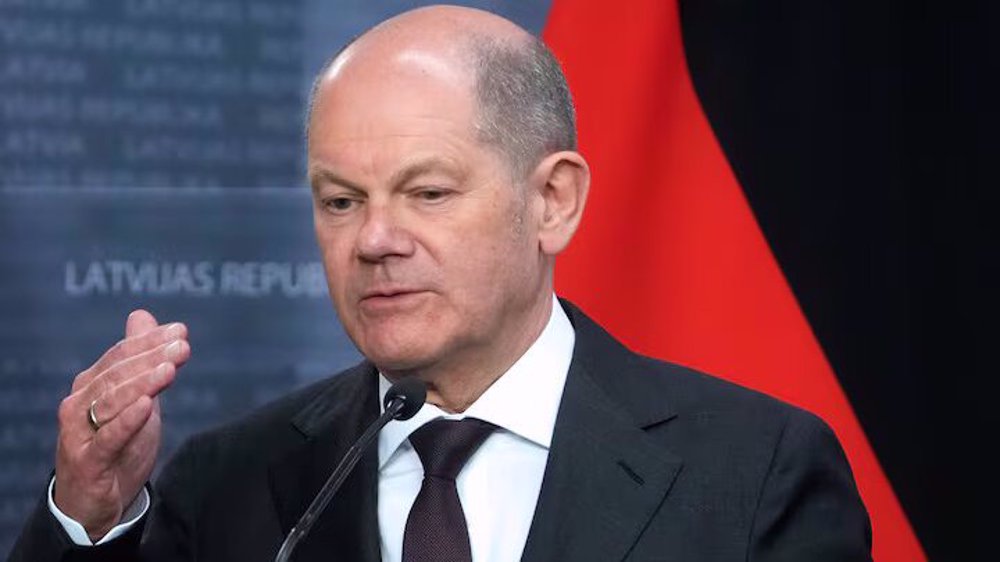Seasoned German chancellor strikes conciliatory note on Brexit
German Chancellor Angela Merkel says the European Union (EU) does not have to be “nasty” to Britain — which has voted to leave the bloc — as other disgruntled European leaders have been calling on the UK to get out quickly.
Speaking at a news conference in the German city of Potsdam on Saturday, Merkel said the bureaucratic procedure for Britain’s exit from the EU “shouldn’t take forever” but that she “would not fight over a short period of time.”
She said she was seeking an “objective, good” climate in the talks on Britain’s exit, and that there was “no need to be particularly nasty in any way in the negotiations; they must be conducted properly.”
Her remarks came after the foreign ministers of the EU’s six founding members — including that of Germany — met in crisis talks in the German capital of Berlin on Saturday to discuss the recent vote by Britons in a referendum to leave the EU.
The foreign ministers of France, Italy, the Netherlands, Belgium and Luxembourg were also present in the summit in Berlin.
Following the talks, the foreign ministers seemed unanimous in calling on Britain to set out a quick timetable for its departure.

On Thursday, some 51 percent of the people in the UK voted in the referendum to exit the bloc. Prime Minister David Cameron, who had campaigned extensively for the UK to stay in the EU and had elicited concessions from the bloc to make that prospect more likely, announced after the vote that he would be stepping down as the British prime minister in October.
German Foreign Minister Frank-Walter Steinmeier said after the Berlin meeting that the process for the departure of the UK “must begin as soon as possible so we don’t end up in an extended limbo period.”
French Foreign Minister Jean-Marc Ayrault also said there is “a certain urgency” to start the process, because of “financial consequences, political consequences ... We must avoid a long period of uncertainty.”
European Commission President Jean-Claude Juncker, who is known for his personal disagreements with Cameron, also said that there is no need to wait until October for Cameron’s resignation and the beginning of negotiations for the UK’s departure.
“It is not an amicable divorce, but it was also not an intimate love affair,” he said, urging the UK to send the “divorce letter” to Brussels “immediately.”
Merkel’s remarks, however, were seen as more conciliatory amid all the tough talk.
“Britain will remain a close partner, with which we are linked economically,” Merkel said.
The EU will hold its first summit of leaders with no British presence on Wednesday.
The UK should invoke Article 50 of the EU Lisbon Treaty in order to set out a two-year timetable for negotiations on withdrawal.
Cameron, however, said on Friday that it would be up to his successor, who is expected to be appointed before the Conservative Party conference in October, to trigger negotiations for the exit from the union.
VIDEO | UK university students commemorate 76 years of Nakba
AFC backs Palestine’s bid for Israel suspension from FIFA over Gaza war
Five Israeli troops killed in 'friendly fire' in Gaza
ICJ to hear South Africa's call to halt Israel’s Rafah offensive
VIDEO | Press TV’s news headlines
Hezbollah hits base of giant spy blimp in 'deepest strike' against Israel
VIDEO | BBC: History of lies
VIDEO | University of Calgary: Pro-Palestine encampment attacked by police














 This makes it easy to access the Press TV website
This makes it easy to access the Press TV website